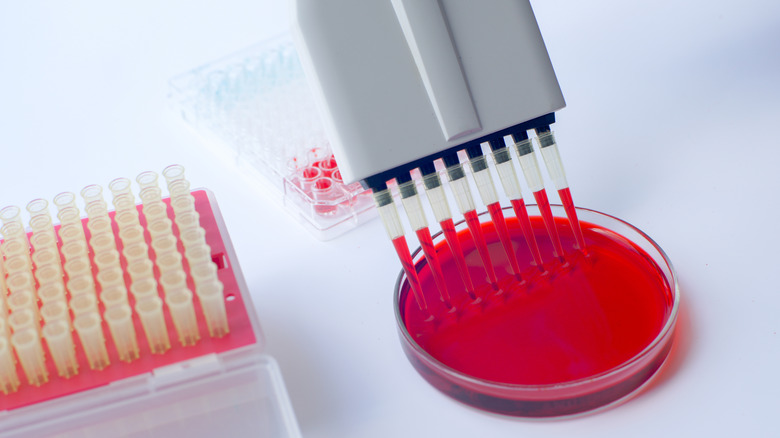What Does It Really Mean When Your WBC Is High?
According to the National Cancer Institute, a white blood cell, also known as a leukocyte, is a type of blood cell made in the bone marrow. Leukocytes form a crucial part of the immune system, helping the body fight against infections and diseases.
The Cleveland Clinic states that it's normal for you to produce nearly 100 billion white blood cells daily. Despite its name, a white blood cell is colorless at first glance. They also have a round shape and may appear very light purple or pink when examined under a microscope.
Medical News Today mentions that there are three main categories of white blood cells: B cells, T cells, and natural killer cells — each having a special function. Collectively, white blood cells travel through your bloodstream, identify and remove infection-causing cells, and attack viral cells and cancer cells.
While sex and age can play a role in the number of white blood cells in the body, Healthline reveals that the normal range for a white blood cell count ranges between 4,000 and 11,000/microliters. Anything above this range is known as leukocytosis, which can signal a health condition.
Causes and symptoms of a high white blood cell count
Leukocytosis is a normal immune response that happens when a person is sick, and it may not always indicate poor health (via Cleveland Clinic). According to WebMD, there could be non-malignant causes of leukocytosis, which may be associated with chronic underlying conditions like rheumatoid arthritis or genetic conditions like Down syndrome.
Medical News Today states that various other factors contribute to a high white blood cell count in individuals. Some common ones include infections, stress, lifestyle habits like smoking or excessive exercise, obesity, and various allergic reactions. Even pregnancy can lead to a high white blood cell count.
Malignant causes of a high white blood cell count can be linked to various conditions such as leukemia or other blood cancers, so it's crucial to consult your doctor for a diagnosis. Concerning symptoms to look out for include fatigue, night sweats, swollen lymph nodes, fevers, weight loss, or an enlarged liver, according to WebMD.
Diagnosis of a high white blood cell count
As its name implies, a white blood count measures your total number of white blood cells. If yours turns out to be high, your doctor must determine the exact cause contributing to the high production of white blood cells in your body. To effectively diagnose the causes, your doctor might request a complete blood count (via MedlinePlus).
Your doctor might also request you take a blood differential test, which measures the amount of each type of white blood cell in your body. Depending on the cause, drugs such as antibiotics or antihistamines might be prescribed to reduce your white blood cell count, per MedlinePlus.
In some cases, a high white blood cell count might signify cancer. A bone marrow biopsy can be used to distinguish between cancer and benign causes (via Healthline). Treatment will depend on the cause of the high white blood cell count.



